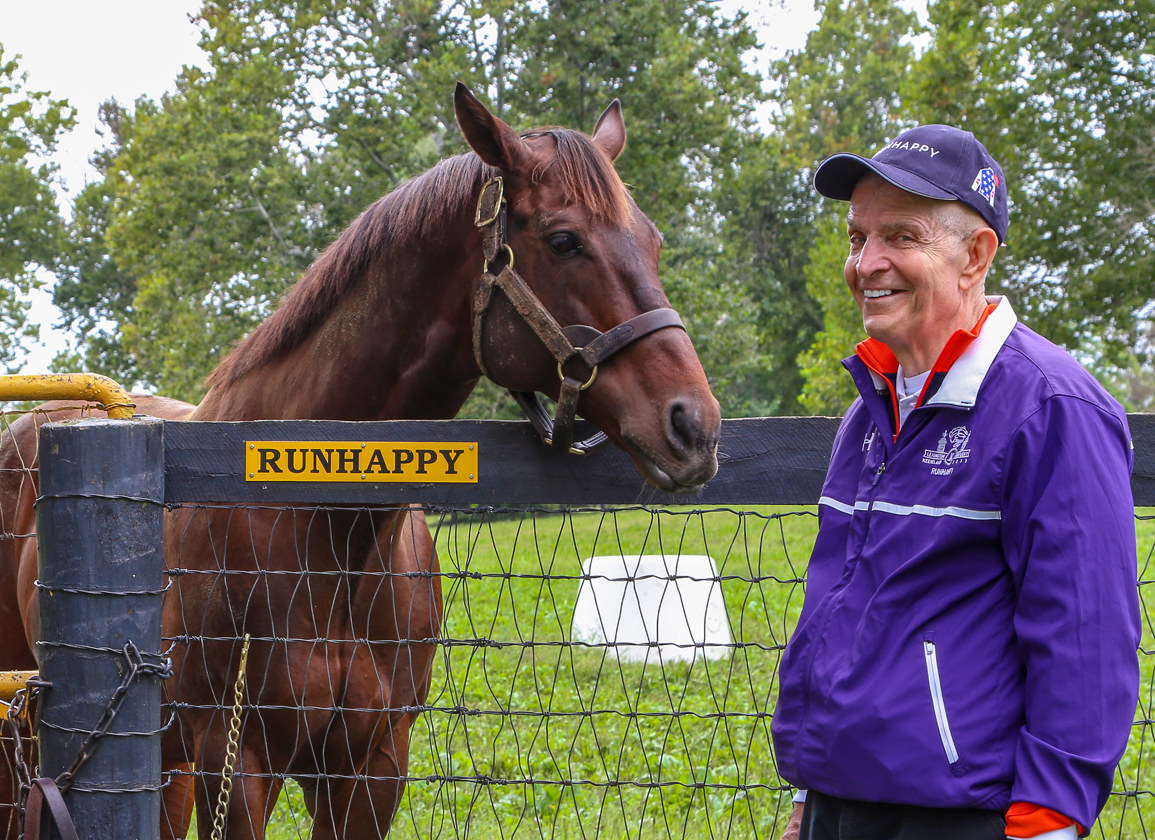As handicappers and racing enthusiasts across America prepare to dive into this week's sensational Belmont Stakes Racing Festival, keep this in mind: Where you bet matters.
It took 25-plus years of horse ownership and a $2.4-million wager for me to fully appreciate the huge difference it makes where a bet is placed. It was a wake-up call for me, and it should be for you. Everyone in horse racing whenever possible should put their money through the windows or self-bet machines at the racetrack.
If you're like I was, you've never really thought about how each dollar gets chopped up. A bet is a bet, you probably think. You get the same payoff if you bet on-track, through simulcasting or online. Even at a casino that is booking the bets, you get track odds, albeit with caps.
But the return to the industry–for the owners whose horses put on the show and for the track that provides the venue–wildly varies depending on where a bet is made. For the long-term viability of the sport, those who work in and/or love horse racing should learn where the money goes and take seriously betting where it maximizes purses.
I was committed to placing at least $2 million on Essential Quality in the Kentucky Derby in order to cover my Gallery Furniture promotion where customers would get their money back if the Derby favorite won. The casinos worked hard to get my action, which they had received for promotions tied to the outcome of the World Series and Super Bowl. It was an eye-opener to learn what it meant in additional dollars to horse owners if I made the largest Kentucky Derby bet in history at the home of the Derby instead of a casino or online.
I lost my $2.4-million total in win bets when Essential Quality finished fourth but sold a boatload of mattresses and had a lot of customers snapping their fingers during the Run for the Roses. But a big winner was Churchill Downs' purse account for horsemen, which accrued $240,000 from my bets alone.
Purses are the lifeblood of American racing–it's what makes our racing unique and is vital to its sustainability. There's a substantial difference in the money that goes to horse owners if a bet is placed onsite at the track or if it's bet through an online platform, simulcasting, a casino or offshore. It also makes a big difference to the track staging the races, with the significant costs entailed in building, maintaining and staffing the facility.
Had I made my wager in Las Vegas, where the casinos do not have a contract with Churchill Downs and therefore could not bet into the parimutuel pools, no money would have flowed back to Kentucky horsemen. If bet anywhere but on track, at best the funding to purses would have been about half. At worst, zero.
If we care about the industry, the last place we should bet is offshore or with casinos that book the bets and don't contribute anything to our mutuel pools or purse account. Offshore sites might offer lucrative rebates–but they can do that because they have no outlay for the cost of putting on the product.
I'm not bashing reputable online betting operations or simulcasting. The pandemic proved how vital ADW operations are to racing, how we were able to stay in business with spectator-less racing while other sports were shut down.
Millennials' and Generation Z's office is their phone, so ADWs are expanding our reach but at the same time should pay an equitable rate to racetracks and horsemen. Kudos to ADWs that have worked with various tracks and horsemen's groups in California, Kentucky and elsewhere to make sure ADW betting on-site returns the same amount to purses as if the bet were placed with a mutuel clerk or self-bet machine.
Of course, if we're asking horseplayers and racing participants to bet at the track where possible, tracks likewise must make their facilities and the experience inviting for fans. Every day, and not just on select days.
Horse racing has a great opportunity to step up our game and attract new fans. The Kentucky Derby and Preakness ratings showed people are interested in horse racing. Heck, my Gallery Furniture promotion shows that the Kentucky Derby and racing resonate with the guy and gal on the street.
We've got to attract younger people. We need to attract the followers of Barstool Sports, Bleacher Report, Action Network. We need to embrace sports-betting content.
There is no easy fix. It takes commitment, effort and ingenuity. But our sport and industry are worth it. Excluding football games, the Kentucky Derby was the third-most watched sporting event since the pandemic hit in March 2020, trailing only the NCAA men's basketball championship game won by Baylor and Gonzaga's semifinal victory over UCLA, according to Sports Media Watch. That's impressive.
The Kentucky Derby, Triple Crown and horse racing are still relevant. But you've got to flame the fire–and also be smart about where we bet. Cumulatively, it makes a huge difference.
Jim McIngvale, also known as Mattress Mack, is an entrepreneur, furniture mogul, philanthropist and horse owner based in Houston. McIngvale campaigned 2015 GI Breeders' Cup Sprint winner and Eclipse Award champion male sprinter Runhappy and has become a major racing sponsor while promoting his horse as a stallion at Claiborne Farm. McIngvale can be reached at (281) 844-1963 or [email protected].
Not a subscriber? Click here to sign up for the daily PDF or alerts.






